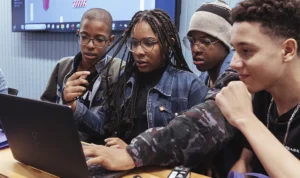Fighting hunger and other socioeconomic effects of Covid-19 mobilizes companies and individuals
In 2020, many Brazilians mobilized to face the social and health emergency triggered by Covid-19. And one of the ways to mitigate the impacts that the disease had on the health and income of the most vulnerable people was private social investment, which is the voluntary transfer of private resources for social, environmental, cultural and scientific projects that are of public interest.
Since the beginning of the pandemic, R$ 7.16 billion has been donated to actions related to the effects of Covid-19 in areas such as health, social assistance, education and income generation, points out the ABCR Donation Monitor (Brazilian Association of Fundraisers ). And the majority (85%) of these resources came from companies – including iFood.
“This data is interesting because donations made by low-income individuals have been falling in Brazil since 2015, but that of richer people and companies has increased, which has mitigated the drop in social investment”, comments Cássio Aoqui, executive director from the bridgePoint, specialized consultancy on the topic.
According to the Brazil 2020 Donation Survey, the percentage of people who make donations to organizations shrank from 46% of the population in 2015 to 37% in 2020, with a sharp drop among low-income Brazilians. On the other hand, among those with a family income above 6 minimum wages (R$ 6,270), the percentage of donors to socio-environmental organizations and initiatives grew and reached almost 60%.
In the general picture, the last biannual report released by Gife (association of social investors in Brazil), in 2018, shows that the volume of private social investment fluctuated downwards in the last decade, especially because of the 2008 international financial crisis and the instability political and economic in Brazil in the 2010s. The average value of private social investment, which was R$ 44 million in 2008, reached R$ 25 million in 2018. In the same period, the total invested decreased from R$ 3.54 billion to R$ 3.25 billion.
Mix of strategies
Companies are the sources of funds most accessed by social investors – whether to support foundations and institutes or to act as investors, according to Gife. “In Brazil, historically, resources coming from companies are of great importance”, says Cássio.
“When we see such an alarming picture in terms of food insecurity and food waste, this bothers us, but it also shows an opportunity to help combat the problem”, says André Borges, head of sustainability at iFood.
Like him, Brazilians see food security as a priority. In 2020, the fight against hunger and poverty came to the top of the ranking of causes that most raise awareness among the population, ahead of health and projects focused on children, according to the Donation Brazil 2020 Survey.
For André, the seriousness of the issue of hunger in Brazil calls for a structured and collaborative response, as in the project Everyone at the Table, launched in October 2021. The initiative brings together partners such as iFood, the NGO Ação da Cidadania, Nestlé, Carrefour, M. Dias Branco and relies on food redistribution intelligence from the social impact startup Connecting Food to redistribute surplus food to those who need it instead of wasting it.
“Our expectation is to redistribute 1,500 tons of food by March 2022”, adds André. “Public authorities alone cannot change the situation, and companies can help. At iFood, we want to connect those who can donate to those who need food.”
Tackling the problem of food insecurity requires a mix of strategies, considers Cássio. “There has to be space for assistance, which acts in the short term, because people are going hungry today, but it is also necessary to think about long-term solutions and investments.”



